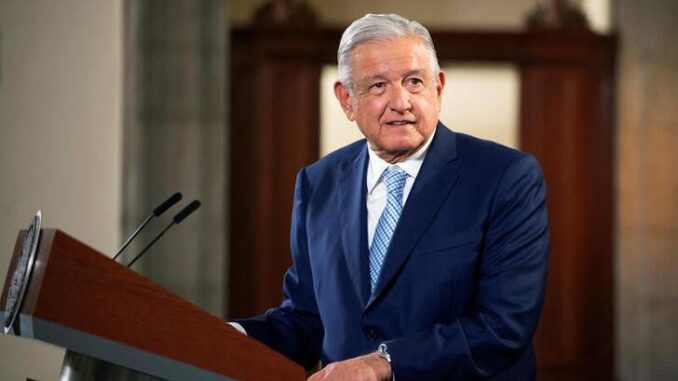
MEXICO CITY, July 21 (Reuters) – Mexican President Andres Manuel Lopez Obrador on Thursday denied his energy policies breached a regional trade agreement after Canada challenged them, and said that he had reached agreement with a host of American investors in the sector.
Speaking at a regular news conference, Lopez Obrador said Mexico would defend control of its oil as well as its power market policies, responding to news that Canada had joined a U.S. demand for dispute settlement talks over his energy agenda.
The demand was the culmination of years of concern among U.S. and Canadian companies that Lopez Obrador’s drive to tighten state control of energy treated them unfairly and was in breach of the United States-Mexico-Canada Agreement (USMCA).
Lopez Obrador said there had been “no violation” of the USMCA trade pact, and that his government had been successfully dealing with concerns among U.S. energy companies in Mexico.
“We have to make our sovereignty count,” he said.
Canada’s International Trade Minister Mary Ng on Thursday reiterated that Canada had “consistently raised its concerns regarding Mexico’s change in energy policy”.
“We agree with the United States that these policies are inconsistent with Mexico’s USMCA obligations,” Ng said in a statement.
Lopez Obrador said that about a month ago, he had spent two weeks meeting with 19 energy companies, and had reached agreement with 17 of them. He did not identify any of them.
Lopez Obrador also said the energy issue was “not discussed” when he met business executives in Washington last week.
However, the U.S. Chamber of Commerce, which helped to organize the talks, said executives had voiced “serious concern” over a worsening investment climate in Mexico and urged it to uphold its USMCA commitments, particularly on energy.
Among concerns raised at the meeting were policies that executives said unfairly favored Mexico’s state-owned energy companies at the expense of private rivals, as well as delays in securing permits for companies, the Chamber said in a statement.
Source: Reuters.com



